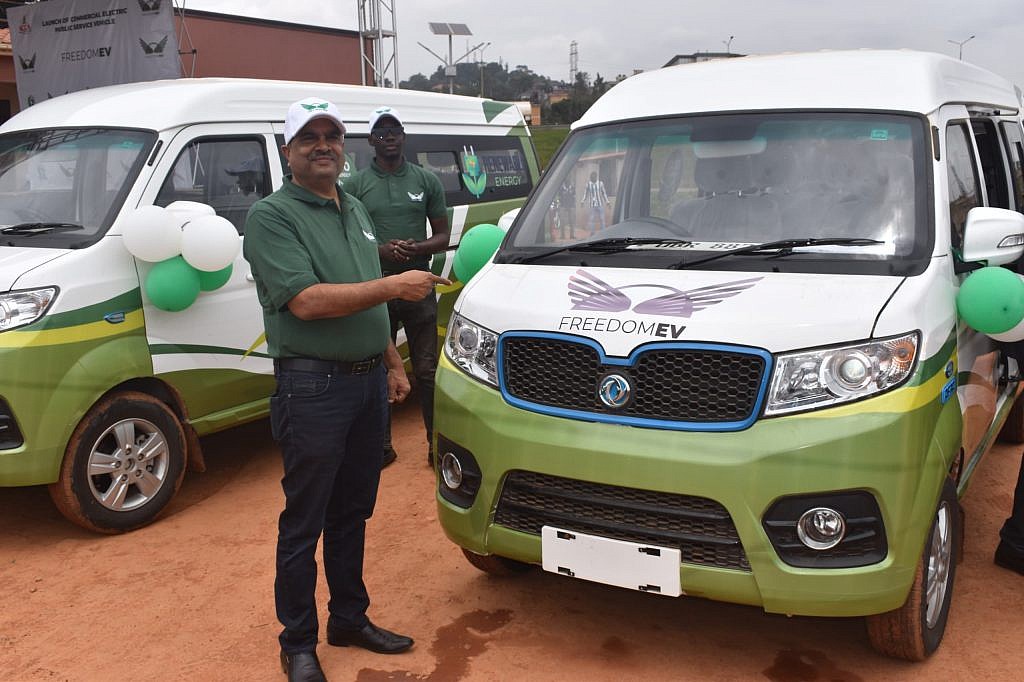FreedomEV has unveiled Uganda’s first commercial electric taxi at the Bwaise Transit Terminal in Kampala, marking a significant milestone in the country’s push towards sustainable urban transportation.
The launch of this eco-friendly public transport solution aims to address long-standing environmental pollution issues and reduce transportation costs for both operators and passengers.

Ratan Tayel, Director of FreedomEV, highlighted the taxi’s key features during the launch event. The fully electric vehicle can travel 250 kilometers on a single charge, which takes approximately one hour and costs around 40,000 Ugandan shillings (approximately $11 USD).
Tayel emphasized the economic benefits, noting, “This vehicle will run 250 kilometres with one hour charging, and that hour charging will cost approximately shs40,000. So this is economic, and with this vehicle, you don’t have to go for services, you don’t need any oil, you don’t have to change your filter, air filter, oil filter.”
The 11-seater electric taxi, priced at 120 million Ugandan shillings (about $32,000 USD), comes equipped with air conditioning and WiFi. A charging station has been installed at the Bwaise Terminal to support the vehicle’s operations.
Jafari Abuyi, FreedomEV’s marketing manager, revealed plans to expand the electric fleet to include 14-seater vehicles and buses, aiming to make Uganda’s public transportation system more environmentally friendly.

Abuyi also highlighted the economic benefits, stating, “The car has a warranty of three years, and the battery life has a warranty of eight years. It saves the economy with issues of fuel; sometimes we’ve been having fluctuations in fuel prices, so it will really help us a lot.”
The introduction of electric taxis has been welcomed by local transport authorities. Douglas Mugera Mayinja, a leader at the Uganda Taxi Operators Federation, praised the initiative for its environmental benefits and potential cost savings.
“From Kampala to Mbale, motor vehicles consume fuel worth shs170,000 but the electric one will need only shs40,000 to charge and this is only for going and coming back,” Mayinja noted.
Fredrick Makanga Bogere, a director at Kalocen Investments Ltd, which manages the Bwaise Terminal, called on the government to embrace and promote the adoption of electric vehicles.
As FreedomEV aims to replace all old taxis in Uganda with electric alternatives, this launch represents a significant step towards cleaner, more sustainable urban mobility in the country. The success of this initiative could potentially serve as a model for other African cities looking to address pollution and transportation challenges.
Nilepost.co.ug



